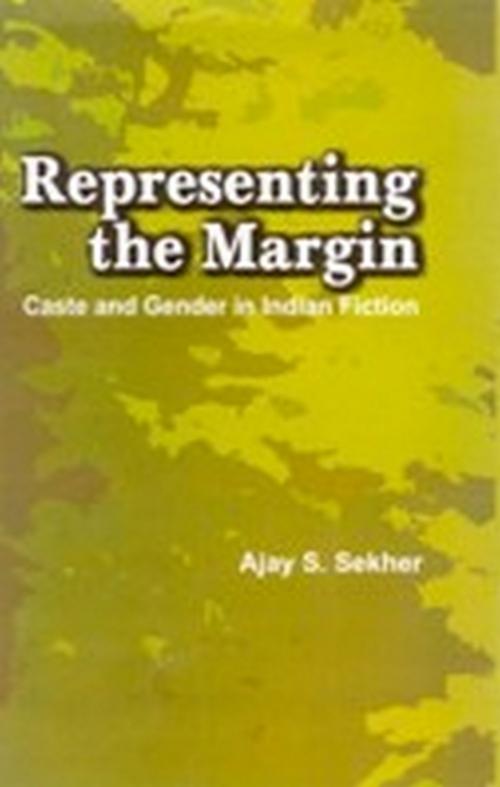| Author: | Ajay S. Sekhar | ISBN: | 9789351288046 |
| Publisher: | Kalpaz Publications | Publication: | June 30, 2008 |
| Imprint: | Kalpaz Publications | Language: | English |
| Author: | Ajay S. Sekhar |
| ISBN: | 9789351288046 |
| Publisher: | Kalpaz Publications |
| Publication: | June 30, 2008 |
| Imprint: | Kalpaz Publications |
| Language: | English |
The work explores the representation of socio cultural margins of caste and gender in Indian contexts in works of fiction written in various Indian languages in the twentieth century, taking representative samples from Hindi/Urdu, Bengali, Kannada, Malayalam and English. The focus of enquiry is the narrativization of these important cultural and political questions in representative texts of fiction. What are the socio political and cultural implications and underpinnings of the representation of marginalization in the medium and genre of fiction, what could be the politics, ethics and aesthetics of such narrating, how far such representations are subversive or consensual/complicit, what are the limitations and pitfalls of such intervening radicalism in fictional narration – all these questions are taken up in detail in the analyses. In the greater sense this study is also a critique of modernity and its discontents as it analyses the dialectics of modernity, its radical as well as reactionary aspects. A problematic premise of contextualizing the text and textualizing the context would also be prominent in the attempt. Fictional texts from five Indian languages including English (two texts from each language ) are incorporated in the study to ensure regional and linguistic representation within the limits of the availability of works in translation. Questions of class analytical perspectives in the context of Brahmanic patriarchy are explicated and critiqued. The need for a subaltern hermeneutics and the urgency of epistemological democratization are also discussed as a political and emancipatory outcome of the study. Both the formal as well as thematic concerns of the novel in the Indian languages are found to be shaped and determined by the material realities and associated attitudes and worldviews of caste and gender hierarchy emanating from internal imperialism. Though the ten texts chosen attempt intense critique of the gender question, the more profound and specific cultural question of caste evades comprehension and critical understanding. Caste often escapes as the un-representable in narration as it is in conversion.
The work explores the representation of socio cultural margins of caste and gender in Indian contexts in works of fiction written in various Indian languages in the twentieth century, taking representative samples from Hindi/Urdu, Bengali, Kannada, Malayalam and English. The focus of enquiry is the narrativization of these important cultural and political questions in representative texts of fiction. What are the socio political and cultural implications and underpinnings of the representation of marginalization in the medium and genre of fiction, what could be the politics, ethics and aesthetics of such narrating, how far such representations are subversive or consensual/complicit, what are the limitations and pitfalls of such intervening radicalism in fictional narration – all these questions are taken up in detail in the analyses. In the greater sense this study is also a critique of modernity and its discontents as it analyses the dialectics of modernity, its radical as well as reactionary aspects. A problematic premise of contextualizing the text and textualizing the context would also be prominent in the attempt. Fictional texts from five Indian languages including English (two texts from each language ) are incorporated in the study to ensure regional and linguistic representation within the limits of the availability of works in translation. Questions of class analytical perspectives in the context of Brahmanic patriarchy are explicated and critiqued. The need for a subaltern hermeneutics and the urgency of epistemological democratization are also discussed as a political and emancipatory outcome of the study. Both the formal as well as thematic concerns of the novel in the Indian languages are found to be shaped and determined by the material realities and associated attitudes and worldviews of caste and gender hierarchy emanating from internal imperialism. Though the ten texts chosen attempt intense critique of the gender question, the more profound and specific cultural question of caste evades comprehension and critical understanding. Caste often escapes as the un-representable in narration as it is in conversion.















